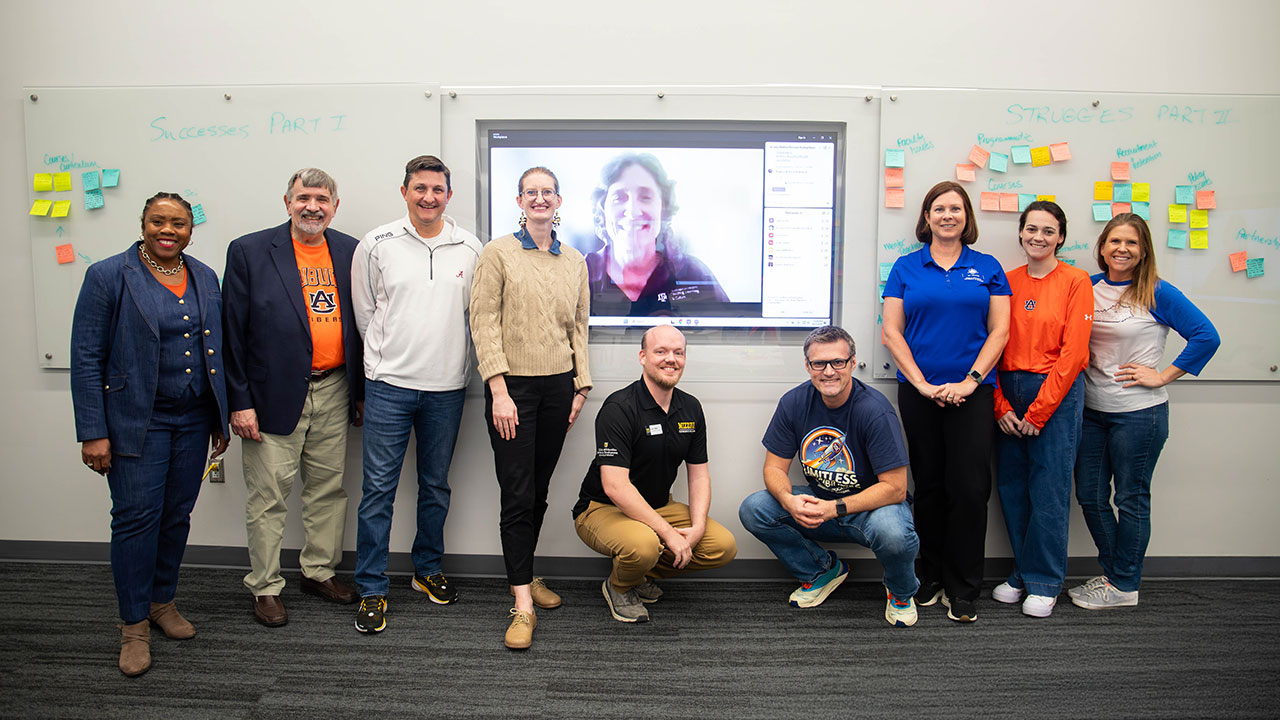content body

Mathematics Education faculty members from Southeastern Conference (SEC) universities gathered Friday and Saturday at Auburn University’s newly opened College of Education building to kick off the fourth annual SEC+ Mathematics Education Community (MEC) Network Conference.
The two-day summit focused on increasing the number of STEM teachers by strengthening recruitment and retention in mathematics education programs across the Southeast.
Hosted by the Auburn College of Education’s Department of Curriculum and Teaching and Gary Martin, Leischuck Endowed Professor of Mathematics Education at Auburn, the event welcomed in-person and virtual attendees from universities including Texas A&M, Alabama, Florida, Kentucky, Mississippi, Missouri, Tennessee, Mississippi State and and Vanderbilt. The SEC+ MEC, a collaborative group that has met monthly online for years, along with an annual convening, continues to expand its efforts to address the critical shortage of mathematics teachers in the region.
Martin said it was special to have the group meet this year at the College of Education’s new home at the corner of Samford Avenue and Duncan Drive.
“Bringing mathematics education faculty together from across the SEC allows us to share strategies, identify common challenges and build momentum toward increasing the number of STEM teachers in our region,” he said. “Hosting this year’s convening in our new College of Education building made the collaboration even more meaningful, as we work to inspire the next generation of mathematics teachers.”
Sessions focused on everything from the Mathematics Teacher Education Partnership, an NSF-funded project involving universities across the country, to AI in Mathematics Teacher Preparation to a best practices panel discussion. Saturday’s sessions focused on finalizing themes for continued collaboration and setting goals for the 2025–26 academic year.
As the SEC+ MEC looks ahead to a virtual spring summit for future math teachers at the SEC universities and future virtual and in-person meetings, faculty members remain united in their mission to expand the STEM teacher pipeline and ensure students across the Southeast have access to high-quality mathematics instruction.




